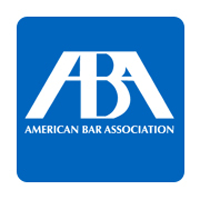ABA grants accreditation to Massachusetts' only public law school

The University of Massachusetts School of Law-Dartmouth, established in 2010, now has full ABA accreditation.
The ABA’s Council of the Section of Legal Education and Admissions to the Bar granted the approval (PDF) at its December 2016 meeting in New Orleans. The law school has had provisional accreditation since 2012.
“The presence of a fully accredited law school enhances the academic offerings of not just UMass Dartmouth, but of the entire public higher education system in Massachusetts,” Peyton R. Helm, the university’s interim chancellor, said in a press release.
According to the state’s Board of Bar Examiners, out of the 36 University of Massachusetts School of Law graduates who took the bar exam for the first time in July 2016, 69.4 percent (PDF) passed. Out of all the school’s graduates taking the Massachusetts bar in July 2016, there was a 50.9 percent pass rate.
“I think that’s not something to be critical of, our first-time pass rate for July 2016 was within 1 percent of our peer institutions,” says Eric Mitnick, the school’s interim dean. He notes that his school’s ultimate bar pass rate, which law schools can use to show compliance with ABA accreditation standards(PDF), is 83.59 percent.That data includes test-taker data from all jurisdictions where graduates took exams.
There are various ways to be in compliance with the ABA standard addressing bar pass rates, including having a 75 percent ultimate bar pass rate for the five most recent calendar years. A proposal to change that to two years is expected to go the ABA House of Delegates in February 2017.
The University of Massachusetts School of Law’s ultimate bar pass rate was 90.28 percent in 2014, according to data (PDF) Mitnick shared with the ABA Journal. In 2013 it was 91.76 percent.
He expects that the school, which is the state’s only public law school, will attract students with higher LSAT scores now that it has full accreditation, and that could lead to better bar results.
In-state full-time tuition at the law school is $26,466 a year, according to the school’s website.
“That’s almost half of what many private law schools have for tuition,” Mitnick said.
The law school came about after the University of Massachusetts took over Southern New England School of Law, which was an unaccredited law school, in 2010, the Boston Globe reports. The law school has an annual budget of $9.3 million, according to the article, and its projected to have a $3.3 million deficit this year.
Mitnick told the newspaper that the law school has 186 students, and 66 were in this year’s incoming class. He’d like to see incoming classes of 130 people by 2020 to break even.



